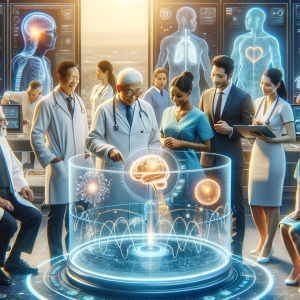
Overview: Generative AI refers to a class of artificial intelligence systems with the ability to create text, images, and audio. At a high level, these systems can often mimic human creativity by generating outputs that are coherent and contextually relevant. Generative AI systems are also highly effective at analyzing text and image data. This class of systems, which includes well-known examples like Chat-GPT, learn these abilities by processing large amounts of data through computational models using method from the field of machine learning. While research is actively ongoing to improve Generative AI models, they are already proving useful in a diverse array of areas within health care.
MassAITC Pilot Project Highlights: MassAITC has funded multiple projects that leverage Generative AI in different problem areas including improving the accessibility of clinical trials, helping to protect older adults from phishing attacks, and improving support for caregivers. In 2024, MassAITC pilot grant awardee and Boston area startup Kinto was acquired by Rippl Care. More information on funded pilots in this area is listed below, along with additional resources including MassAITC webinars touching on this topic area.
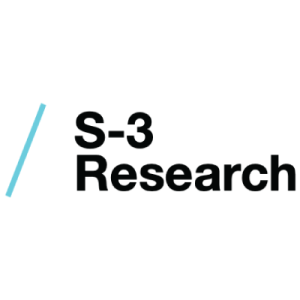
TRIALCHAT: Leveraging LLMs to enhance AD/ADRD clinical trial participation
Tim K. Mackey, S-3 Research LLC, Joshua Yang, California State University, Fullerton. This project will aim to develop TrialChat, an AI-powered chatbot and clinical trial navigator designed to increase participation in Alzheimer’s disease and related dementias (ADRD) clinical trials by providing tailored education, personalized trial matching, and recruitment support for older adults and caregivers.
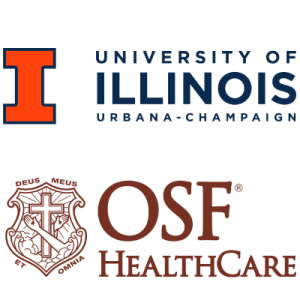
Protecting Patients against Phishing Attacks using AI-enabled Agents
Gang Wang, University of Illinois at Urbana-Champaign. Roopa Foulger, OSF. This project will design, prototype, evaluate, and potentially deploy an AI-enabled voice agent to assist patients (especially older adults) to better recognize phishing messages and reduce cybersecurity risks during patient outreach and communications.
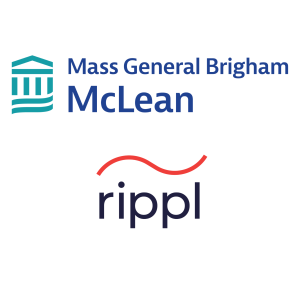
Creating a Framework for Large Language Models for Caregiver Support in Dementia
Ipsit Vahia, Rachel Sava, McLean Hospital. Joseph Chung, Rippl. This project seeks to identify the specific domains of caregiver support that may be best served by AI over geriatric care managers, and to develop an ethical framework for the interaction between caregivers and large language models.

Application of Sentiment Analysis and Generative Language Algorithms to Kinto, a Support Service for Family Caregivers of Persons Living with ADRD
Joseph Chung, Kinto. This project will apply sentiment analysis and large language models to text data from a variety of sources including messaging between coaches and caregivers as well as peer-to-peer support groups.
MassAITC Webinars on Generative AI

Past Webinar – Progress in Personalizing Content and Dosing of a Physical Activity Promotion Intervention, David E. Conroy
Talk Abstract: The Michigan Roybal Center aims to develop physical activity interventions for middle-age and older adults that engage validated mechanisms for adhering to behavior change following the end of active intervention support. This talk will review our ongoing work (a) to develop person-specific dosing algorithms to select the content and timing of text messages and (b) to engineer prompts for generative artificial intelligence systems to author message content that activates affective motivational processes to promote physical activity. The long-term objective of fusing these personalization strategies is to improve adherence to behavior change and reduce risk for Alzheimer’s disease and related dementias. About the Speaker: Dr. Conroy is a Professor and the Bickner Chair in Kinesiology at the University of Michigan where he directs the new Roybal Center for Promoting Adherence
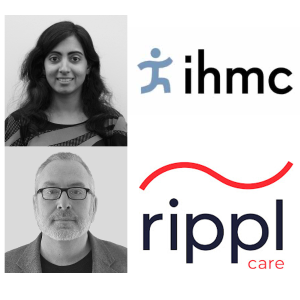
Past Webinar – LLMs for Assistance in ADRD: From Word Retrieval to Caregiver Support – GY2 Pilots
This webinar comprises two presentations by Archie Bhatia from the Institute for Human & Machine Cognition and from Richard Curtis from Ripple Care. They each discuss the work from their MassAITC a2 Pilot awards using LLMs to help with word retrieval for older adults with ADRD and to support ADRD Caregivers. Presentation 1: Integrating LLMs and Other AI Technologies in an Intelligent Cognitive Assistant for Word Retrieval Support for Older Adults with ADRD Speaker: Archna Bhatia, PhD, Research Scientist, Institute for Human and Machine Cognition Abstract: Occasional inability to retrieve words accompanies aging, even for healthy people, and especially for those with Alzheimer’s Disease and Related Dementias (ADRD). This phenomenon tends to thrust people into social isolation, resulting in an increased rate of decline. In this webinar, we will discuss
